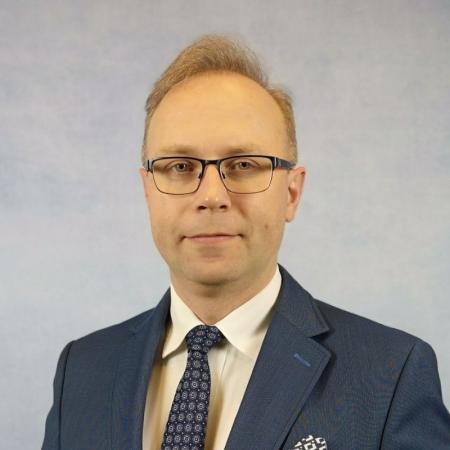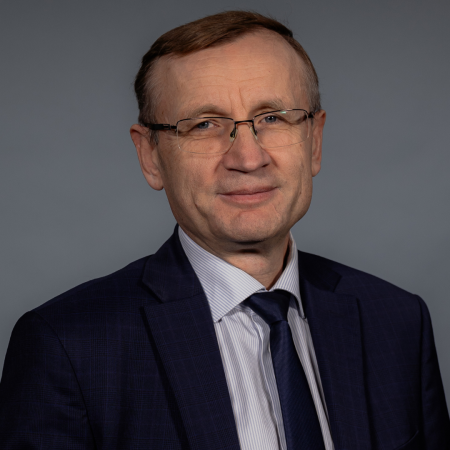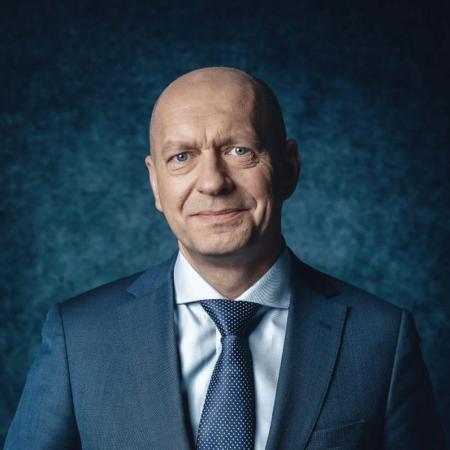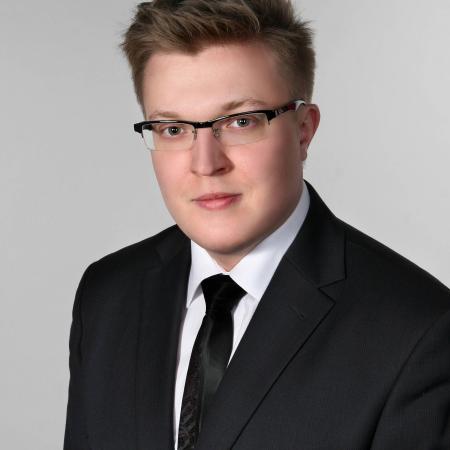field of study
Law in IT
Programme description
Today in the business world it is impossible to function and compete efficiently without the use of increasingly complex ICT solutions.
It is necessary to have access not only to adequate hardware resources, but also to a pool of IT professionals with technical and legal training. Knowledge of separate legal solutions and normative acts designed for the IT sector (e.g., conducting commercial transactions remotely) is highly valued in today's labor market. In particular, the sector of remote sales of services and products and the Internet of Things in the broadest sense are areas of modern economies that are developing extremely rapidly.
Career Perspectives
The study program emphasizes the training of professionals in the high-tech sector, especially telecommunications entrepreneurs, software houses, startups and software investment companies.
Possible careers after studies:
- legal departments of IT entrepreneurs,
- regulatory departments of the IT industry,
- departments of market regulators, such as. in the Office of Electronic Communications,
- departments and units of enterprises in the electronic communications industry,
- enterprises in the IT industry that provide services and sell IT products,
- owning business activities in the IT market,
- owning legal or regulatory activities in the IT market that support entrepreneurs in the industry.
Programme benefits
As a student of "Law in IT":
- you will gain knowledge from the best lecturers of practitioners with many years of experience in the IT industry (we are taught by prominent lawyers who are practitioners, but also well-known IT experts in the market);
- through practical classes and case studies you will analyze IT contracts, and learn how to draft and negotiate contracts related to the creation, development, turnover, maintenance of software;
- the IT workshops will allow you to understand the legal aspects of the IT industry;
- you will learn about the telecommunications industry, the functioning and regulation of the telecommunications market and the activities of electronic communications entrepreneurs;
- you will become familiar with the activities of the regulatory authorities of this market, e.g., the Office of Electronic Communications;
- you will learn about the activities of the regulatory authorities of this market. Office of Electronic Communications;
- you will learn about the functioning of Cloud Computing and legal services in this area;
- you will learn not only about the legal aspects of new technologies, but also about intellectual property, both in companies developing and procuring software;
- you will master IT solutions, in particular blockchain, AI, BIG DATA, open source and open content licenses.

Students majoring in Administration have the opportunity to expand their knowledge and participate in joint scientific projects within the framework of scientific circles.
The lecturers of the Faculty of Law and Administration support students in learning by means of various forms of activities going beyond the area of classical didactic forms, e.g. practice visits to classes, organize workshops, seminars and scientific conferences, as well as meetings with prominent representatives of the science and practice of law.

The Faculty of Law and Administration was ranked 1st in the 17th Ranking of Law Faculties of "Dziennik Gazeta Prawna" (2023), and the Lazarski University's "Law" faculty was ranked 2nd in the ranking of non-public universities of the "Rzeczpospolita" daily.
Our law faculty also boasts the highest possible, outstanding rating by the Polish Accreditation Committee!
Partners



Academic staff

Karol Strzała
Wicedyrektor programów Zarządzanie oraz Finanse i Rachunkowość
Prawnik, finansista

Krzysztof Piech
Dyrektor Centrum Technologii Blockchain
Ekonomista
- Technologia blockchain w nowoczesnym przedsiębiorstwie (sem. letni 2023 r.) oraz w j. ang.
- Uczelnia Łazarskiego:
- Bazy danych (2016-)
- Międzynarodowe stosunki gospodarcze (2017-19)
- Przywództwo w biznesie (2016-17)
- Rynki finansowe / Financial markets (2019-21)
- Szkoła Główna Handlowa:
- Analiza koniunktury i badanie rynków zagranicznych (2006-10)
- Ekonomia behawioralna / Behavioural economics (2014-16)
- Gospodarka wiedzy / Knowledge economy (2004-09)
- Polityka gospodarcza I / Economic Policy I (2004-2010), Polityka gospodarcza i społeczna oraz Economic and Social Policy (2011-2016)
- Uczelnia Łazarskiego:
- Analiza finansowa II (2019-)
- Giełdy papierów wartościowych w Polsce i na świecie (2016-17)
- Nowoczesne technologie w biznesie (2019-21)
- Międzynarodowe rynki finansowe (2017-2019)
- Przywództwo w biznesie II (2016-17)
- Technologia blockchain w nowoczesnym przedsiębiorstwie (2019-), Blockchain i kryptowaluty (2017-2018)
- Szkoła Główna Handlowa:
- Ekonomia rozwoju / Development Economics (2006-16)
- Ekonomia sektora publicznego (2011-12)
- Kryzysy finansowe i stabilność finansowa / Financial Crises and Financial Stability (2011-14)
- Planowanie i prognozowanie zjawisk gospodarczych (2002-06)
- Polityka gospodarcza II (2002-2010)
- Polityka gospodarcza w różnych systemach (2002-06)
- Polityka inwestycyjna (2002-06)
- Polityka teleinformatyczna (2002-06)
- Start-up technologiczny (2015-16)
- Teoria wzrostu (2008)
- Wybrane polityki Unii Europejskiej (2006-07)
- Koniunktura gospodarcza i kryzysy finansowe - Środowiskowe Studia Doktoranckie w Kolegium Studiów Społecznych Instytutów Polskiej Akademii Nauk (2012-2013)
- PS Blockchain: Biznes, Prawo, Technologia (SGH): wykład inauguracyjny (4. edycja), Rynek blockchain w Polsce (2022-23)
- MBA – Challenges in Emerging Markets (INE PAN): Economic Forecasting and Crises (2012)
- Akademia Ewaluacji Programów Społeczno-Ekonomicznych (EUROREG UW): Modele makroekonomiczne w ewaluacji programów publicznych (2010-12)
- PS „Ewaluacja programów finansowanych ze środków Unii Europejskiej” (Akademia Koźmińskiego): Metody (makro)ekonomiczne stosowane w ewaluacji (2010-11)
- PS Administracji i Polityki Gospodarczej SGH: Koordynacja polityk gospodarczych w UE, Podstawy polityki gospodarczej, Polityka makroekonomiczna (2007)
- PS Administracji Europejskiej, Funduszy Unijnych i Polityki Gospodarczej (SGH): Diagnozowanie koniunktury gospodarczej, Elementy teorii polityki gospodarczej, Gospodarka oparta na wiedzy, Instytucje europejskie, Międzynarodowa integracja gospodarcza, Polityczny cykl koniunkturalny, Polityka i strategie inwestycyjne krajów (2005)
- PS Europejskich Stosunków Finansowo-Ekonomiczno-Prawnych (SGH): Polityka inwestycyjna (2004-06)


Małgorzata Sieradzka
Kierownik Katedry Prawa Gospodarczego Publicznego
Adwokat

Tomasz Braun
Prorektor ds. współpracy międzynarodowej UŁa, Dyrektor zarządzający Ins. Gospodarki Amerykańskiej i Stosunków Transatlantyckich
Prawnik, Finansista

Tuition fees
(2 semesters)
2 x 6120 PLN
8 x 1530 PLN
(2 semesters)
2 x 6480 PLN
8 x 1620 PLN
Application process
Register online
You can enrol at our University in a few simple steps:- check qualification criteria,
- verify language requirements,
- fill out the application form and proceed with the further application steps!
Pay the admission fee and submit your documents
Admission fee is EUR 17* (bank account details will be available in the Candidate’s Account after online registration)
*Lazarski University graduates are exempt from the admission fee. Please, note that admission fee is non-refundable.- Deliver documents to the Admissions Office
Check the ranking list
You will receive your acceptance letter by email or in the Admissions Office.Congratulations - you are a student!
Are you already among our students? We encourage you to download all useful information we have prepared for those who are beginning their studies at Łazarski University! Student Welcome Pack.
- part-time studies
